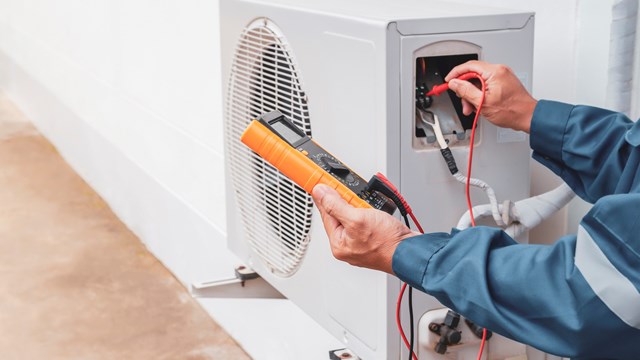
In most buildings—even otherwise well-run, well-managed ones—building staff and administration can sometimes get a little bit lax in their day-to-day maintenance duties. Equipment doesn’t get serviced. Paint peels. Dust and dirt accumulate in the corners of the hallway carpets. Spiders claim ownership of hard-to-reach ceiling corners. And in the basement, where the expensive machinery sits, less obvious signs of neglect can spell havoc for a building’s bottom line.
This lassitude may be because the current board is less engaged than in the past, or because of understaffing, or because the building’s managing agent simply hasn’t paid adequate attention to how the building is being cared for. Or it might be human nature—we do just as much work as we need to, even if just enough isn’t actually enough.
Whatever the reason, the minor lapses today can be the major problems of tomorrow. Prolonged neglect can spell serious trouble for a building—both in terms of decreased value (real and perceived) and potential liability if neglect leads to injury or property damage.
Why does maintenance slip? How can you tell it’s slipping? And how can those in charge properly motivate slacker employees? Let’s take a look.
See the Problem
Determining that there is a maintenance problem can be obvious: dirt, burned-out light bulbs, broken equipment. What is obvious to a resident might not be to a property manager, who needs to have keen ears.
“There’s things you notice when you’re at the building for yourself,” says Beth Markowitz, president of Merlot Management, Inc. in Manhattan. “Or there’s an upswing in complaints from residents, particularly those who do not usually pick up the phone.”
So why does maintenance slip? One reason is simple: human nature. We begin a job with gusto, and then we calibrate the effort to match the level of expectation. If the supervisor—whether that’s the super, the property manager, or the board—doesn’t notice the extra elbow grease, why kill ourselves?
“I don’t know if complacency is the word I’d use,” says Markowitz. “A lot of times, a longstanding employee can get complacent. Then it’s a case of can you teach an old dog new tricks?”
Sometimes, it’s the staff hierarchy itself within the building that leads to slippage. Let’s say a building has a staff of five, managed by the superintendent. The five subordinates are eager workers, but the super himself spends at least three hours a day leafing through magazines or surfing the Internet in his office. How long will the subordinates break their backs when their boss is a lollygagger?
“Guys slack off when the super slacks off,” says Michael Berenson, president of Manhattan-based AKAM Associates, Inc., a management company. “It’s important that the super delineates that their task must be accomplished in an efficient and timely manner.”
Margie Russell, the executive director of the New York Association of Realty Managers (NYARM), takes a big picture view.
“The whole problem with our industry is that every building is its own small business,” she says. Small businesses lack the resources of corporate America. “The social scientists who write books that the PhDs teach from—this industry doesn’t have that.”
There is less peer interaction, less cross-pollenization of ideas, more antiquated views of management style, more resistance to change, and—most importantly—fewer opportunities for advancement for good employees.
“There is less climbing up the ladder,” Russell says. “You get a lot of people who are in positions for many, many years, working with the same people for many, many years. There can be a lot of axes to grind.”
Another reason maintenance slips is both the easiest and the hardest to redress, depending on the economic outlook of the shareholders.
“Money—that’s probably the first issue,” says Markowitz. “There’s only so much money in the pot. Eventually, you have to start making hard choices. Do you fix the boiler, or do you paint the building? Or do you ask everybody to write a bigger check?”
In these grim economic times, raising monthly fees may not be feasible, even if the cost of goods and services keep rising.
“Anything that’s petroleum-based has gone up in cost,” says Markowitz. “From garbage bags to anything that includes steel.”
It has become a game of doing more with less. If there is no money to throw at the problem, the only thing that can fix the situation is good management.
Managing Better
So what is good management, exactly? Let’s start with what it’s not.
“Too many papers threaten progressive discipline,” Russell says. “But do we have to hit them with threat of the rod every time there’s a new procedure?”
Too often, building staff is treated like serfs, like cogs in Industrial Age machines, instead of individuals with their own unique strengths. For example, when rolling out a change in procedure, many buildings will immediately threaten punishment if the new rules aren’t implemented, which does not sit well with the staff, Russell says.
Yelling and screaming and threatening retribution doesn’t work very well with three-year-olds, so why should we expect it to work with mature adults? There are better ways to light a fire under underperforming employees, say the pros — and they all start with respect.
“First off, you need to have meetings,” says Markowitz. “General meetings — don’t get into personal stuff. Talk about expectation levels. Have a conversation about what needs to happen. Hear both sides of the issue.”
The results from giving employees (who are, after all, on the job every day) a forum for voicing concerns can bear great fruit.
“What supers can do, what property managers can do to better motivate staff, is start with meetings—no less than once a month,” says Russell. “When you do that, you can hear about all the little things that can go wrong.”
Maybe people are complaining about dirty carpets, and the person cleaning those carpets doesn’t have the right equipment. This is something that could come out of a meeting.
“Make sure that staff has the right equipment,” says Berenson. “Vacuum, shampoo machine, mop heads.”
This sort of communication is not just to make employees feel valued. Managers get a better understanding of the big picture by talking to everyone.
“Just by listening to what might be a less-than-perfect idea from the staff,” Russell says, “it can add an idea that perfects it.”
Another suggestion: encourage employee development, such as taking classes. Russell, for one, teaches a Human Relations class at NYARM.
“As long as the operations of the building are not impaired in any way, buildings should give time off to encourage staff to take classes,” Russell says.
This seems counter-intuitive, but it can be productive. Russell says that if you take your most productive and least productive employees, and had them take a class, both would probably improve enough to justify the time off.
The least productive employee’s performance “may raise from 40 percent to 45 percent. And if it doesn’t, [the class] is his last chance. You did everything you could.”
Schedules
Respect and buy-in from the top are important, but so is making sure the staff has its priorities straight.
“There needs to be schedules provided to the staff that schedules routine and preventive maintenance,” Berenson says. “A checklist needs to be followed, and the staff needs to be held accountable.”
If employees don’t know what their priorities are on the job, they will do what they think needs to be done. Sometimes, that’s cleaning more and doing preventive maintenance—which is invisible until something expensive breaks—less.
Sometimes the residents are culpable—their demands on the super’s time affect job performance.
“If the super is taking care of personal issues during working hours, let the unit owners know that they need to arrange for him to come change light bulbs after working hours,” says Markowitz.
So, if you find your building maintenance is not up to snuff, you may need to spend more money, you may need to rethink the way your staff is managed, or, in extreme cases, make personnel changes. But fixing the problem can be easier than you think.
“Sometimes, it’s something really simple,” says Markowitz.
Greg Olear is a freelance writer and a frequent contributor toThe Cooperator.






Leave a Comment